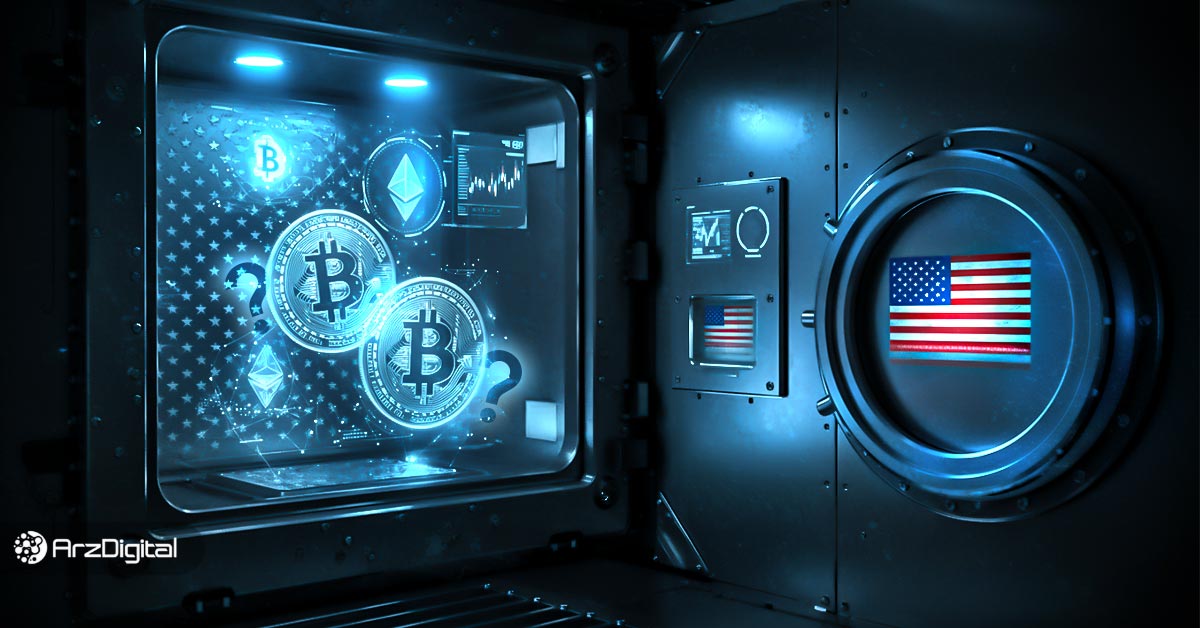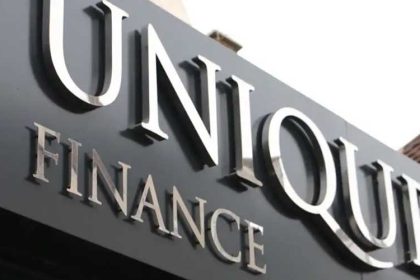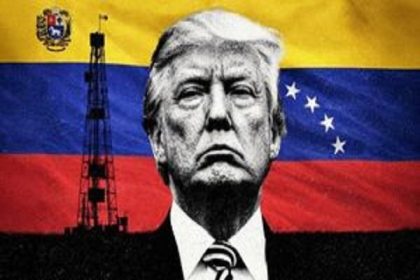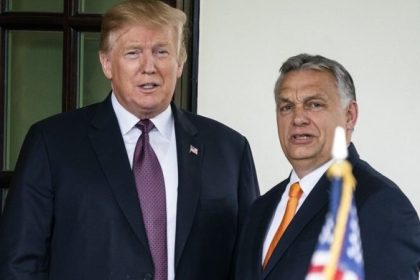The dramatic growth of digital currencies and their acceptance globally has led governments and large financial institutions to examine the role of these currencies in their financial policies. In this regard, the United States, as the world’s largest economy, has made key decisions on strategic reserves. In this article, we will examine the impact of this decision on the crypto market.
What is strategic reserves?
Strategic reserves refers to assets that governments maintain for emergencies or market regulation. These reserves usually include gold, oil and Fiat currencies. With the expansion of the digital economy, some governments have turned to the possibility of strategic reserve currencies.
During Donald Trump’s presidency, his economic and financial policies had a profound impact on world markets. One of his most controversial actions was US strategic reserve currencies such as Bitcoin (BTC), Ethereum (ETH), Ripple (XRP), Cardano (ADA) and Solna (SOL).
Read more: America sets up the strategic reserves of digital currencies
Digital currencies and their role in the digital economy
Digital currencies such as Bitcoin, Ethereum and Ripple have a significant impact on the Financial Markets and institutional investment. With the progress of China’s blockchain and the increase in digital currency institutional acceptance, these assets have become an important part of countries’ Financial Policies.
Cryptocurrencies, as one of the main components of the digital economy, play an important role in financial and technology developments. Traditional financial structures have undergone major changes with the emergence of China’s block and rapid growth of Ramriers such as Bitcoin, Ethereum and Ripple.
Read more: What is China’s Block
The impact of digital currencies on the financial market
One of the most important effects of digital currencies on the financial market is increased speed and transparency in transactions. Unlike traditional banking systems, where transactions processing may take days, China’s block networks allow transactions in a shorter period of time.
Institutional acceptance of digital currencies
In recent years, many corporations and governments have been moving towards the institution of digital currency. Some countries are investigating the possibility of using bitcoin as a strategic reserve, and others, such as Cardano and Solana, focus on developing digital economy -related technologies.
Regulations and Economic Security Challenges
Despite the many benefits, digital currency regulations are still one of the major challenges. Governments such as the US, influenced by financial policies, are trying to set a framework for monitoring these digital assets. On the other hand, economic security is also a key concern; Because severe price fluctuations can affect financial markets.
US government decision to incorporate digital currencies into strategic reserves
The US government led by Donald Trump has decided to make digital currencies as part of the country’s strategic reserves. US strategic reserve currencies include Bitcoin, Ethereum, Ripple, Cardano and Solana. Creating strategic reserves reflects a major change in US financial policies.
Bitcoin in US Strategic Reserves
Donald Trump issued an executive order ordered Bitcoin’s strategic reserves and other digital currencies. According to the decision, the US government will have about 6,000 bits confiscated and retain it as a reserve of gold.
David Sacks, Trump’s David Sacks, said the reserves have acted as a “Digital Fort Knox” and that the US government will not sell existing bitcoins. Fort Knox is a highly security fortress in the US Kentucky, with most of the US gold reserves stored.
Ethereum in US Strategic Reserves
The US government, along with Bitcoin, has also put Ether into its strategic reserves, a move that could strengthen Ramsar’s position in the global economy. In the same vein, World Liberty Financial, introduced last year by Donald Trump and its sons, has so far sold more than $ 5 million in Block -based digital tokens based on China’s Ethereum and has announced a strategic reserve to support Bitcoin, Ethereum and other important romances.
Read more: What is the WLFI currency
Ripple, Cardano and Solana in US Strategic Reserves
Ripples are among the options reviewed by US strategic reserves because of their high scalability and Solana due to the high speed of transactions. Cardano is a China blockchain founded by the renowned American entrepreneur Charles Hoskinson and one of the founders of the Ethereum Project. Following Trump’s announcement, the price of ADA rose more than 5 %.
Solana is a China block that is commonly used to launch Mim Quinn, including Trump’s digital currency. Solana’s digital currency gained popularity in year 6. At that time, it was considered as a rival of Ethereum and played a prominent role in the NFT market.
Read more: What is Trump Currency (Trump)
Ripple is a digital currency created by the US company Ripple. At the time of writing this article (April 1), about $ 2 billion, Ripple is the third largest digital currency. The company has been involved in a lawsuit with the US Stock Exchange for years whether XRP sales were considered as an illegal securities proposal in year 2.
Read more: What is Ripple
The impact of Trump’s decision on the crypto market and the world economy
Trump’s decision to establish bitcoin strategic storage and other digital currencies can have profound impact on financial markets, digital currencies and the global economy. The decision is made to strengthen the US position in the digital currency world and maintain Bitcoin’s strategic position as a safe asset or “digital gold”.
Strengthen the legitimacy of cryptocurrency
US strategic reserve currencies can give more legitimacy to digital currencies. If the United States, as one of the world’s largest economies, recognizes these assets, other countries and financial institutions will be more willing to accept and use digital currencies.
Impact on bitcoin price fluctuations
One of the main challenges of digital currencies, especially bitcoin, is severe price fluctuations. If the United States wants to buy a lot of bitcoin and keep it in its strategic storage, it will have a significant impact on its price. On the one hand, buying and storing huge quantities can raise the price of bitcoin in the short term; But at the same time, concerns about the high prices and the stability of these prices in the long run can cause doubts in the market.
Concerns about tax costs and economic consequences
However, it has been announced that the project will be financed through the confiscated digital assets and will not cost taxpayers; However, there are concerns about government use of digital currencies. Many analysts are concerned that buying bitcoin at the highest prices may be costly for the US economy, and if prices fall, the government will suffer significant losses.
Impact on other countries’ policies
Creating a strategic bitcoin storage may also lead other countries to adopt similar policies. This can lead to a change in how digital currency management and global financial policies. On the other hand, some countries who seek alternatives to Fiat currencies due to sanctions or economic problems may be more willing to use bitcoin as a reserve asset.
Creating strategic storage can cause changes in demand and supply of digital currencies in the market. The decision could also lead to the weakening of trust in Fiat currencies, especially the dollar, and affect the global markets.
Reactions and criticisms of digital currencies into US strategic reserves
The introduction of digital currencies into the US strategic reserves has been accompanied by various reactions and criticisms from economic experts, government officials and market participants.
Positive reaction
Some supporters of the decision believe that US strategic reserve currencies could strengthen the US position as a leading digital world. This can stabilize digital currencies as secure and reliable assets and somehow accept more globally.
Proponents of the plan believe that having digital reserves can help the United States in times of economic crisis or displacement of global funding.
Negative reactions
One of the biggest criticisms of the project is the sharp fluctuations in digital currency prices. For example, bitcoin prices can greatly change in short periods, which can be dangerous to strategic reserves and long -term investments.
Another criticism of this decision is the lack of transparency in the maintenance and management of these assets. Given the decentralized structure and technical complexity of digital currencies, maintaining the security of these reserves against hacks or potential abuse can be challenging. Also, many critics believe that the government may require legal changes and even adoption of new laws in Congress.
Some participants and investors in the crypto market are concerned that governments may manipulate the market by interfering with the digital currency market and buying high volumes from Bitcoin and other currencies.
The US government’s storing bitcoin and digital currencies will create new global competitions. For example, some other countries may seek to create similar reserves to compete with the United States, which can lead to greater fluctuations in the global digital currency market.
Frequently asked questions
The US government has decided to create strategic reserves in order to reduce dependence on the dollar, counter inflation and increase its influence in the digital economy. The move is also a response to the rapid growth of China’s blockchain technology and the increase in the adoption of Ramriers worldwide.
Digital currencies are selected based on criteria such as high liquidity, security, extent of use and value storage capability. Bitcoin as digital gold, Ethereum has entered the reserves because of its strong ecosystem of smart contracts and currencies such as Ripple, Salana and Cardano due to high speed and low commission in the transactions.
Creating strategic digital currency reserves can increase demand and lead to rising prices in the market. Maintenance and lack of sales of US strategic storage currencies will reduce market supply, which will probably increase its value.
Other countries may, in response to this, change their policies towards Ramsar. Some, such as China, may apply more strict regulations to protect their control over the financial system, while European countries may think about developing their own reserves.
Conclusion
The US government’s decision to add digital currencies to the country’s strategic reserves is a turning point in US financial and economic policies. These reserves include rumors such as Bitcoin, Ethereum, Ripple, Cardano and Solana.
While proponents of the decision see it as a step towards strengthening the US position in the digital economy and the institutional acceptance of Ramriers, critics have warned of price fluctuations, security challenges and the possible impact of the policy on the dollar and the traditional financial system. Overall, US entry into the field of strategic reserves reflects the change of governments’ approach to digital currencies and can affect the future of financial markets.
RCO NEWS


















